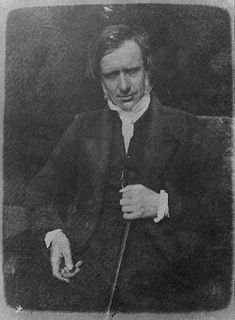Top 203 Repeats Quotes & Sayings - Page 4
Explore popular Repeats quotes.
Last updated on April 21, 2025.
I am wary of repeating myself too much. In this age of Netflix, as a Netflix show, if you want to go back and watch a season 1 episode, you can do that easily. I'm not interested in repeating the same story beats over and over and over again. But part of the truth of BoJack story is about how much he repeats himself and these patterns that are difficult to get out of. I'm trying not to be evasive about that. I'm not using that as an excuse. I think that's convenient to fall back on as a TV writer: "Oh, it's a show about stagnation."
For in grief nothing "stays put." One keeps on emerging from a phase, but it always recurs. Round and round. Everything repeats. Am I going in circles, or dare I hope I am on a spiral? But if a spiral, am I going up or down it? How often -- will it be for always? -- how often will the vast emptiness astonish me like a complete novelty and make me say, "I never realized my loss till this moment"? The same leg is cut off time after time.
History repeats itself only in that, from afar, we all seem to lead exactly the same life. We are all born; we all spend time here on earth; we all die. But up close, we have each walked down our own separate paths. We have stood at our own lonely crossroads. We have touched the lives of others at crucial points, for better or for worse. In the end, each of us has lived a unique life story, astounding and complicated, a story that could never be repeated.
I think my first general rule is that most of my experiences are not that interesting. It's usually other people's experiences. It's not that entirely conscious. Somebody tells me a story or, you know, repeats an anecdote that somebody else told them and I just feel like I have to write it down so I don't forget - that means for me, something made it fiction-worthy. Interesting things never happen to me, so maybe two or three times when they do, I have to use them, so I write them down.
I think [James] Joyce sometimes enjoyed misleading his readers. He said to me that history was like that parlor game where someone whispers something to the person next to him, who repeats it not very distinctly to the next person, and so on until, by the time the last person hears it, it comes out completely transformed. Of course, as he explained to me, the meaning in Finnegans Wake is obscure because it is a 'nightpiece.' I think, too, that, like the author's sight, the work is often blurred.
Over and over again, stories in women's magazines insist that women can know fulfillment only at the moment of giving birth to a child. They deny the years when she can no longer look forward to giving birth, even if she repeats the act over and over again. In the feminine mystique, there is no other way for a woman to dream of creation or of the future. There is no other way she can even dream about herself, except as her children's mother, her husband's wife.
The saying goes that history repeats itself; personal histories do the same. We can gather the lessons of others' lives through observation, conversation, and by seeking advice. We can use the automatic system to find out who the happy people are, and the reflective system to evaluate how they got to be that way. Pursuing happiness need not be a lonely endeavor. In fact, throwing in our lot with others may be a very good way of coping with the disappointments of choice.
Oh, Myr," he chokes out. "I hate having to ask this of you..." He glances towards the car again, and I crouch down in the shadows, hoping it's too dark for him to see whether the window is open or closed. The woman pats his arm, cradling her hand against his elbow. "You know I'd do anything for you and Hil," she says. I like her voice. It's throaty and rich. "You'd do anything?" my father repeats numbly. "Even now? After -?" "Even now," the woman says firmly.
I love the sound of it," Trina whispers, as if speaking too loudly might interrupt the drumming patter of the rain outside. "It makes me want to sleep. Snuggle my head right up in your armpit and snore for three days." "My armpit?" Mark repeats. "Good thing we all showered up in the storm this morning. My pits smell like roses. Go ahead and get comfy.
Let us suppose that an ichthyologist is exploring the life of the ocean. He casts a net into the water and brings up a fishy assortment. Surveying his catch, he proceeds in the usual manner of a scientist to systematise what it reveals. He arrives at two generalisations: No sea-creature is less than two inches long. (2) All sea-creatures have gills. These are both true of his catch, and he assumes tentatively that they will remain true however often he repeats it.
Alex touches her arm. "You look nice." "Nice?" she repeats. "Try harder, Alex." He flushes adorably. "Really nice," he says. "Next time, try this," Harry says. He reaches for my hand. "Franny, I didn't know what beauty was until I saw you walking toward us a minute ago. "I like this better," I say, pulling away. "At least he sounded like he meant it." "I meant it," Harry says, almost irritably.
We are in a period called post. In previous periods, anti-Semitism was always direct. Today's anti-Semitism isn't direct. If you say today that the Jews are absolute evil, or Israel is absolute evil, you must say Israeli is committing genocide against the Palestinians. It is very rare to find a Western politician who repeats these things.
A man's liberal and conservative phases seem to follow each other in a succession of waves from the time he is born. Children are radicals. Youths are conservatives, with a dash of criminal negligence. Men in their prime are liberals (as long as their digestion keeps pace with their intellect). The middle aged run to shelter: they insure their life, draft a will, accumulate mementos and occasional tables, and hope for security. And then comes old age, which repeats childhood - a time full of humors and sadness, but often full of courage and even prophecy.
The gods weave misfortunes for men, so that the generations to come will have something to sing about.” Mallarmé repeats, less beautifully, what Homer said; “tout aboutit en un livre,” everything ends up in a book. The Greeks speak of generations that will sing; Mallarmé speaks of an object, of a thing among things, a book. But the idea is the same; the idea that we are made for art, we are made for memory, we are made for poetry, or perhaps we are made for oblivion. But something remains, and that something is history or poetry, which are not essentially different.
There's a great Anton Chekhov quote. He says, "The Russian loves recalling life, but he does not love living." That scene has always been something that I have held dear. When something happens, the first thing you want to do is tell it. That's almost more exciting. It's almost simultaneous with the experience; you are already telling something incredible while it's happening. The stories that everybody carries around and repeats, I am really interested in that.
In traveling, a companion, in life, compassion,'" she repeats, making sure of it. If she had paper and pencil, it wouldn't surprise me if she wrote it down. "So what does that really mean? In simple terms." I think it over. It takes me a while to gather my thoughts, but she waits patiently. "I think it means," I say, "that chance encounters are what keep us going. In simple terms.
For the three decades after WWII, incomes grew at about 3 percent a year for people up and down the income ladder, but since then most income growth has occurred among the top quintile. And among that group, most of the income growth has occurred among the top 5 percent. The pattern repeats itself all the way up. Most of the growth among the top 5 percent has been among the top 1 percent, and most of the growth among that group has been among the top one-tenth of one percent.
A teacher can never truly teach unless he is still learning himself. A lamp can never light another lamp unless it continues to burn its own flame. The teacher who has come to the end of his subject, who has no living traffic with his knowledge but merely repeats his lesson to his students, can only load their minds, he cannot quicken them.
Marriages are always moving from one season to another. Sometimes we find ourselves in winter--discouraged, detached, and dissatisfied; other times we experience springtime, with its openness, hope, and anticipation. On still other occasions we bask in the warmth of summer--comfortable, relaxed, enjoying life. And then comes fall with its uncertainty, negligence, and apprehension. The cycle repeats itself many times throughout the life of a marriage, just as the seasons repeat themselves in nature.
Every object in nature is impressed with God's footsteps, and every day repeats the wonders of creation. There is not an object, be it pebble or pearl, weed or rose, the flower-spangled sward beneath, or the star-spangled sky above, not a worm or an angel, a drop of water or a boundless ocean, in which intelligence may not discern, and piety adore, the providence of Him who took our nature that He might save our souls.






















